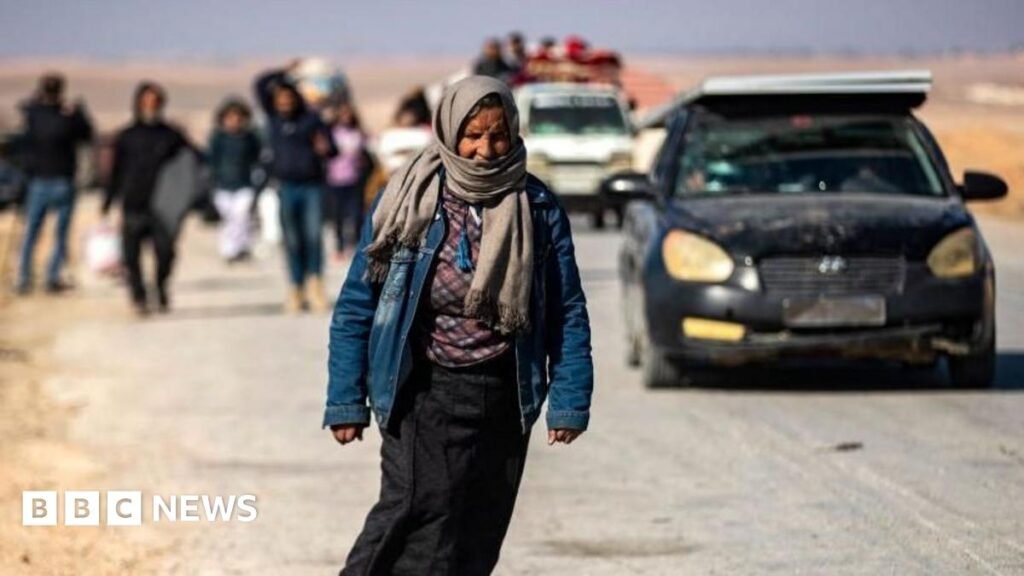Trump’s rhetoric dates back to how he spoke about Syria during his first term, when he derided the country – which has an extraordinary cultural history dating back millennia – as a land of “sand and death”.
“I think Donald Trump himself wanted very little to engage with Syria during his first administration,” said Robert Ford, who served as President Barack Obama’s ambassador to Syria from 2011-14 and advocated for greater American involvement in that administration. in the form of supporting Syrian moderate opposition groups to resist Assad’s brutal suppression of its population.
“But there are other people in his circle who are much more concerned about the fight against terrorism,” he told the BBC.
The U.S. currently has about 900 troops in Syria east of the Euphrates River and in a 55-kilometer (34-mile) “deconfliction” zone bordering Iraq and Jordan.
Their official mission is to counter the IS group, now greatly degraded in camps in the desert, and to train and equip the Syrian Democratic Forces (SDF – the US’s Kurdish and Arab allies who control the area).
The SDF also guards camps housing IS fighters and their families.
In practice, the US presence on the ground also went beyond this, helping to block a potential arms transit route for Iran, which used Syria to supply its ally Hezbollah.
Mr. Ford, like other analysts, believes that while Mr. Trump’s isolationist instincts play well on social media, realities on the ground and the views of his own team may eventually soften his stance.
This view is supported by Wael Alzayat, a former adviser on Syria at the US State Department.
“He’s bringing serious people into his administration to lead his Middle East record,” he told the BBC, noting in particular that Senator Marco Rubio, who has been nominated for secretary of state, “is a serious a major player in foreign policy.”
That tension — between isolationist ideals and regional goals — also came to a head during his first term, when Trump withdrew remaining CIA funding for some “moderate” rebels and ordered the withdrawal of U.S. troops from northern Syria in 2019.
At the time, Waltz called the move a “strategic mistake” and, fearing a resurgence of IS, Trump officials partially backed off from his decision.
Trump also departed from his ideals of non-intervention, launching 59 cruise missiles at a Syrian airfield after Assad allegedly ordered a chemical weapons attack that killed dozens of civilians in 2017.
He also doubled the sanctions against the Syrian leadership.
Waltz summed up the blurred lines of Trump’s “this is not our fight.”
“That doesn’t mean he’s not ready to absolutely step in,” he told Fox News.
“President Trump has no problem taking decisive action when the American homeland is under any threat.”

